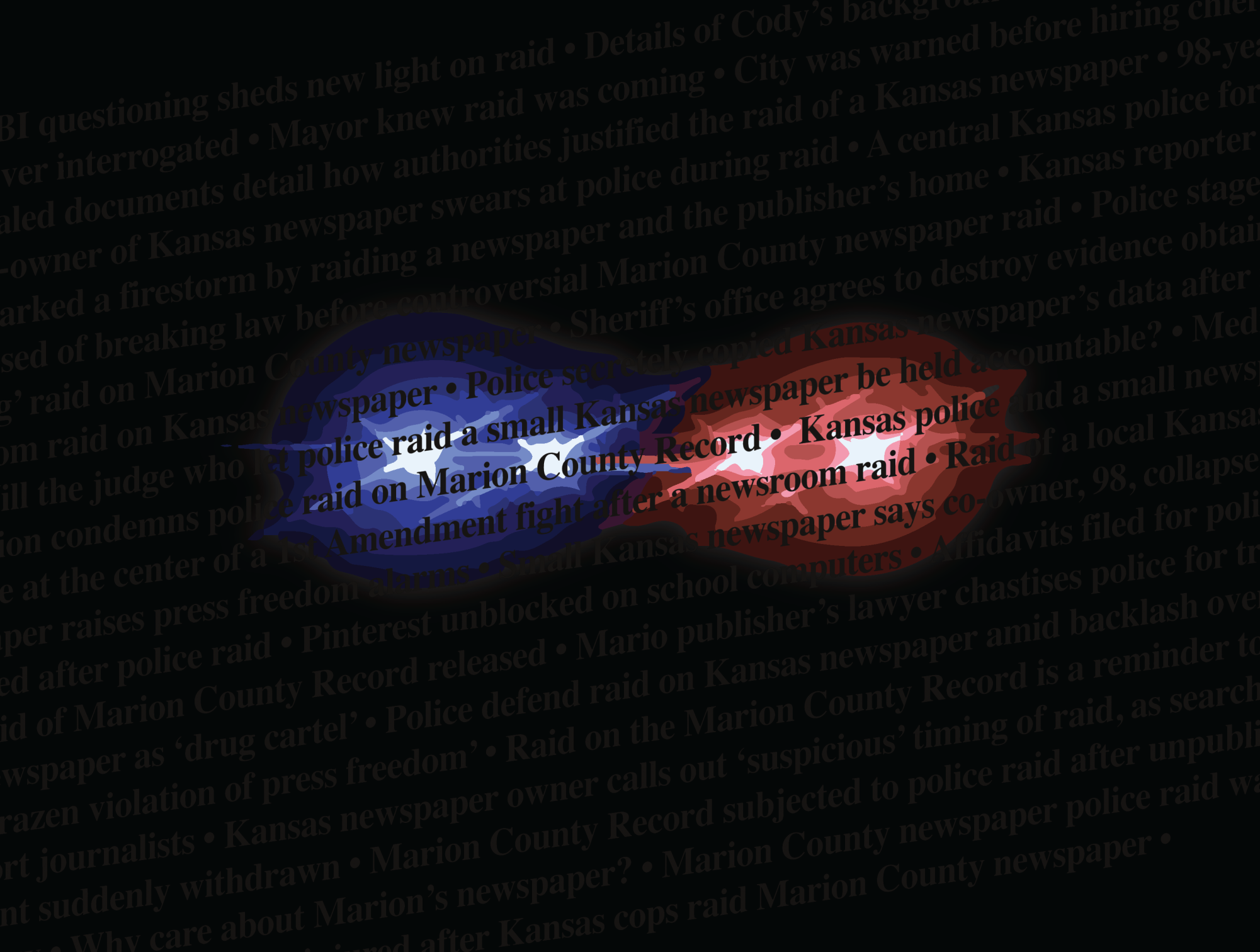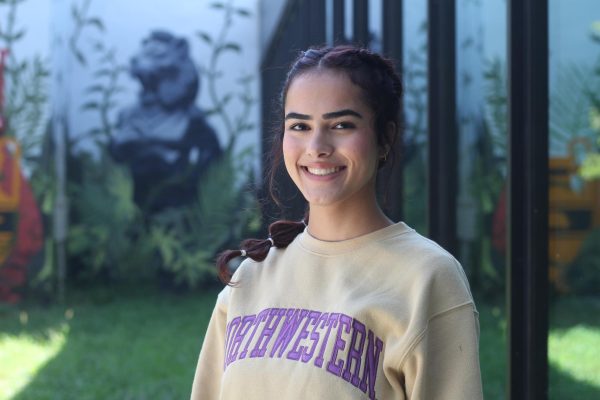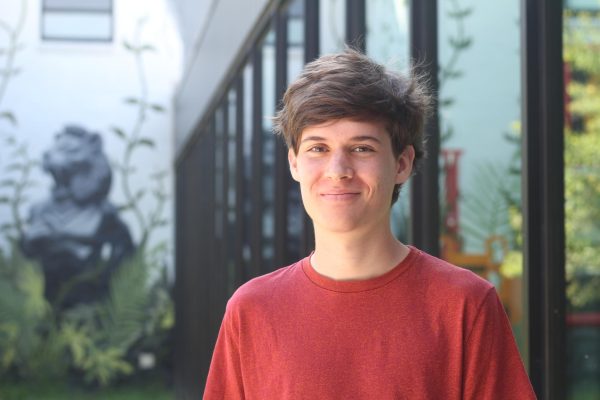National outrage spread quickly when police raided the press office of the Marion County Record, a small but fiery local newspaper in central Kansas.
Police removed phones and computers in a highly unusual raid on the small newsroom. Immediately dozens of news organizations from across the country came to the Record’s defense. The outrage is merited, but too often the free press rights of students — who are often doing the same work as professional journalists — are trampled with too little angst.
This story and the larger debate over free speech have deep implications for independent journalism and for student journalism as well. The Budget is fortunate to publish in Kansas, where student press freedoms are well-protected. But other student publications around the country are left without those defenses, and their rights to free press are in danger.
The Kansas Student Publications Act protects high school journalists in Kansas public schools from censorship by school administrators. This means that students are free to publish the content they think is important, assuming it’s not “libelous, slanderous, or obscene,” according to the law. This gives us the freedom to do important reporting without the threat of a school administrator controlling what we publish out of fear of politics or controversy.
While noting that student publications may need to be supervised more than professional publications, Washington University law professor Greg P. Magarian says that student journalists should be protected from administrative censorship.
“In my experience and observation, student journalists tend to take their work and responsibilities very seriously,” Magarian said. “Unfortunately, school administrators too often tend to be thin-skinned, self-interested, and/or not very concerned with the positive value that independent student journalism adds to schools.”
Examples of censorship abound. In 2022, the Viking Saga, the student newspaper of Northwest High School in Nebraska, was shut down by their principal for publishing a newspaper discussing Pride month and other LGBTQ+ topics.
Also in 2022, the Pearl Post, the student newspaper of Daniel Pearl Magnet High School in California, published a story about their district’s new Covid vaccine mandate. Students reported that the school librarian had stopped showing up to work after the mandate went into effect. The school threatened the newspaper, but the students decided to leave the former librarian’s name in the story, after the Student Press Law Center advised them that they were within their rights to do so. In retaliation, the school suspended the journalism adviser. Fortunately, the adviser appealed the suspension and won, thanks to California legislation that protects student journalists.
Too often, this censorship comes when students are writing the stories professional journalists have missed. In 2017, the Booster Redux — the Pittsburg High School newspaper — produced a brilliant story that drew into question their newly-named principal’s credentials, uncovering discrepancies in her resume. The principal resigned.
If that reporting was done in another state with fewer protections for student journalists, the district’s superintendent might have easily — and legally — stopped that story from seeing the light of day.
Seventeen states currently have enacted New Voices legislation that protects student journalists’ free press rights. Eric Thomas, director of the Kansas Scholastic Press Association, says efforts are ongoing to pass this legislation in more states.
“It takes a lot of work these days to get the attention of state legislatures and to get them to pass a law. Everybody sees these laws with some sort of partisan valence,” Thomas said. “Kansas is lucky in the fact that we passed it at a moment when partisanship wasn’t nearly as divided as it is right now.”
The Student Press Law Center, based in Washington, D.C., is one organization that is working hard to expand student rights. Their senior legal counsel, Mike Hiestand, says they are proud of their work promoting New Voices.
“One of the best things we’ve ever done at the Student Press Law Center is about four years ago we hired an individual to help us specifically with some of the advocacy behind New Voices, doing some lobbying work and grassroots organization,” Hiestand said. “We can’t take on all 50 states, but there are groups in most states now that have introduced some sort of New Voices legislation.”
As the examples above show, this New Voices legislation can have real impacts on real students. Hiestand’s first question when students call regarding censorship issues is, “Where are you calling from?”
In a perfect world, that question will be unnecessary. Why should some students be legally protected, and not others?
This is clearly an unfair situation that has tangible consequences. Yet, we have a solution. In this time of increasing pressure on the national media, New Voices legislation should be a priority for every state to adopt to protect the journalists of the future.
Overzealous police in one small Kansas town showed how essential it is for journalists to be protected. Student reporters deserve those same protections from threats of censorship. Democracy depends on it.









